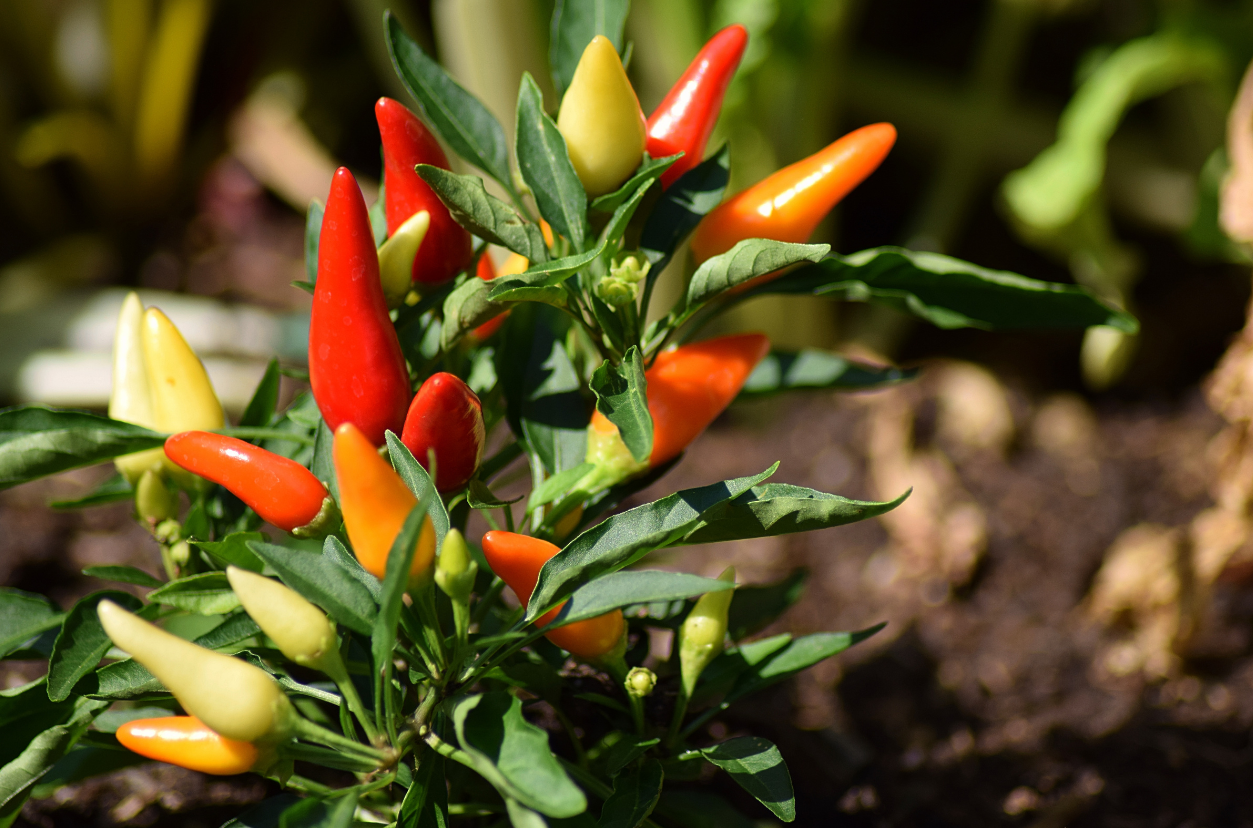Best Fertilizers for Peppers: A Comprehensive Guide to Boost Your Harvest
Exactly How Plant Foods Play an Essential Function in Cultivating Bountiful and healthy and balanced Pepper Crops
Fertilizers act as the foundation of effective pepper farming, providing a critical method to nurturing the dirt and promoting optimal plant growth. The detailed dance between crucial nutrients and the pepper plants' physiological processes highlights the pivotal function that plant foods play in making certain an abundant harvest. From sustaining durable origin advancement to bolstering condition resistance, the influence of fertilizers is far-reaching in the cultivation of rewarding and healthy and balanced pepper plants. Remain tuned to discover the nuanced methods which fertilizers add to the prospering of pepper plants and the lasting methods that underpin their effectiveness.
Value of Nutrient-Rich Fertilizers
The application of nutrient-rich fertilizers plays a pivotal function in boosting the productivity and high quality of pepper plants in modern-day agricultural practices. Nitrogen, potassium, and phosphorus are main nutrients that are critical for the growth and development of pepper plants.
Insufficient degrees of these nutrients can cause stunted development, lowered returns, and vulnerability to illness (best fertilizers for peppers). Nutrient-rich plant foods supply a targeted remedy to make certain that pepper plants obtain the essential components for optimum development and performance. In addition, these plant foods aid boost dirt fertility with time, developing a lasting atmosphere for long-lasting pepper growing
Enhancing Plant Growth and Development
To optimize plant development and growth in pepper plants, calculated application of nutrient-rich fertilizers is crucial. Plant foods play a critical function in enhancing the overall health and performance of pepper plants by supplying them with crucial nutrients that might be lacking in the soil. Phosphorus, nitrogen, and potassium are primary macronutrients called for in huge quantities by peppers for durable growth. Nitrogen aids in leafed environment-friendly growth and overall plant vitality, phosphorus supports root growth and flower development, while potassium contributes to disease resistance and fruit top quality.
Along with these macronutrients, trace elements such as iron, magnesium, and zinc are additionally important for the correct functioning of different plant procedures. Iron, for example, is essential for chlorophyll production, which is necessary for photosynthesis and overall plant growth. Zinc plays a crucial function in enzyme task and hormone synthesis, influencing plant growth and growth at a cellular level. Magnesium is important for the development of chlorophyll and total energy transfer within the plant.

Boosting Disease Resistance With Fertilizers
By strategically integrating targeted fertilizers, farmers can boost the illness resistance of pepper crops, making sure ideal plant health and wellness and productivity. Fertilizers including necessary nutrients like nitrogen, phosphorus, and potassium play an essential role in reinforcing pepper plants' immune systems, making them extra durable to different diseases.

Making The Most Of Pepper Return With Fertilization
Making use of a balanced fertilization method is essential to attaining optimum pepper yield and making certain ideal plant efficiency. By providing peppers with the appropriate nutrients at the correct time, farmers can considerably enhance their return capacity. Phosphorus, nitrogen, and potassium are vital elements for pepper development, with nitrogen helping in leaf and stem advancement, phosphorus supporting origin growth and flower formation, and potassium advertising overall plant wellness.
To maximize pepper return, it is important to carry out dirt tests to establish existing nutrition degrees and identify any type of shortages that need to be attended to. Based on these results, farmers can create a tailored fertilizing plan that fulfills the particular demands of their pepper crops. In addition, proper fertilization methods such as split applications throughout the growing season can ensure constant vitamins and mineral accessibility for the plants.

Lasting Fertilizer Practices for Peppers
In taking into consideration sustainable fertilizer methods for peppers, it is vital to concentrate on long-lasting dirt health and ecological stewardship in combination with optimizing crop efficiency. Lasting plant food practices aim to keep or improve dirt fertility while minimizing unfavorable ecological influences. One key technique is using organic plant foods such as garden compost, manure, or cover plants, which not just provide necessary nutrients to have a peek at these guys the peppers but likewise add to soil structure and microbial activity. These natural alternatives aid build raw material in the soil, improving its capacity to preserve water and nutrients, therefore sustaining long-lasting crop health and wellness and durability.
Furthermore, precision farming techniques, such as soil screening and targeted nutrient applications, can assist optimize plant food usage, making sure that peppers get the nutrients they need without excess drainage right into waterways. This not only profits the environment by reducing pollution yet additionally conserves expenses for farmers by reducing waste. By adopting lasting fertilizer techniques, pepper farmers can secure the health and wellness of their plants, dirt, and surrounding ecosystems for future generations.
Verdict
To conclude, plant foods are important for growing healthy and bountiful pepper crops. best fertilizers for peppers. They supply required nutrients for plant development and development, boost disease resistance, and make the most of return. By implementing lasting plant food practices, farmers can make sure the long-term health and wellness of their pepper plants and add to an extra environmentally-friendly and efficient farming system
The elaborate dancing in between essential nutrients and the pepper plants' my company physical procedures underscores the essential duty that plant foods play in ensuring a bountiful harvest.To enhance plant development and growth in pepper plants, strategic application of nutrient-rich fertilizers is vital. Plant foods play an essential function in improving the total wellness and productivity of pepper plants by supplying them with essential nutrients that might be doing not have in the soil.By tactically including targeted plant foods, farmers can reinforce the condition resistance of pepper plants, making sure ideal plant health and performance. Fertilizers containing essential nutrients like nitrogen, potassium, and phosphorus play a vital function in reinforcing pepper plants' immune systems, making them more resilient to numerous diseases.